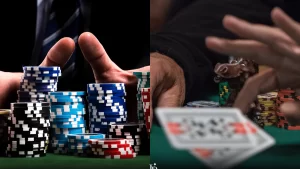
The fundamental principles of poker can be distilled into three words: time limit, information and strategy. Players should set a time limit for a game. Violation of this rule will turn a pleasant session into a frustrating one. For instance, the host may announce, “Three more deals,” “through Zane’s deal,” or something similar. Players can gauge their strategies accordingly. It’s also helpful to know how long a particular game will last.
The trumps are scored based on their trump rank, or ring around their name. If they are void, the hand must be withdrawn. Other hands may be played to trumps, as the king is more likely to be drawn than any other card. The king is always the best card to lead in a hand, but it is still best to check with the other players as well. Some players will fold when they are dealt a king.
A game of poker can have as many as ten players, and the ideal number is six to eight. A pot is the total of all bets made by all players in one round of poker. The highest-ranking poker hand (or pair) wins the pot. The player who makes the best bet without calling the king or queen wins the pot. There are other ways to win the pot, and the basic principles of the game are applicable in every situation.
Raising pre-flop should almost always result in betting after the flop. The only exception would be if you scared away all of your opponents by raising to nothing. But if your raise scared people away or hit nothing, chances are that somebody else got a hand that would not fold. Bet after the flop to let your opponents know when you’ve hit a hand. When you have a weak hand, you can also raise big to make it harder for your opponents to fold.
While a good GTO strategy will provide you with a solid base for your strategy, the best GTO player doesn’t necessarily play by these principles. A game theory optimizer, for instance, focuses on using bluffs to gain advantage. For this reason, the best GTO players are players who balance their bluffs and value hands. In the long run, this can lead to unexploitable players.
Many players believe that in order to win big, they must play a lot of hands. In reality, there’s no better way to win than to win consistently. This doesn’t necessarily require good math skills. While basic combinatorics can be useful in other poker games, poker is about the simplest form of play. And the best way to master it is through practice. In the long run, it’s worth the time and effort.







